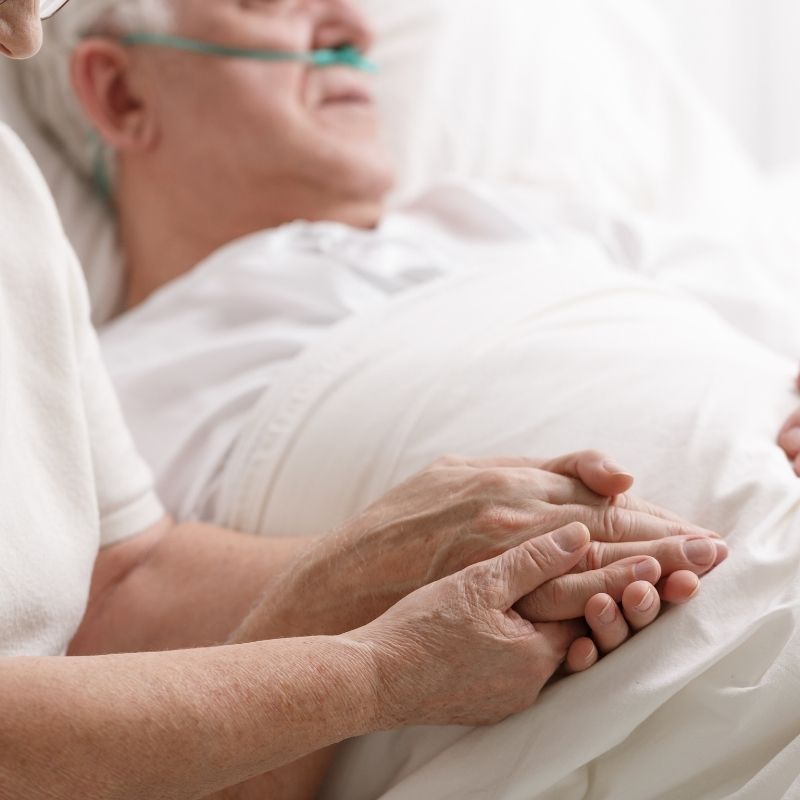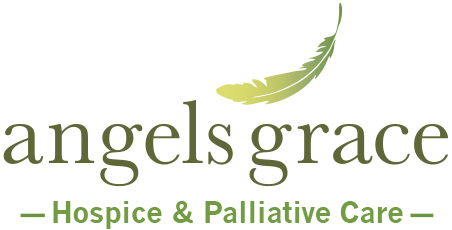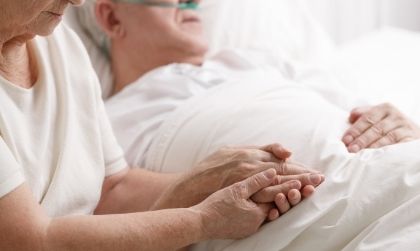 One of the most common questions is “what should I expect when my loved one is dying?” With that question comes a lot of fear and anxiety for some. Once people understand and know what to anticipate, some of that stress is at least reduced. Everyone presents differently and their experience is a unique one. There are common trends that people universally tend to present with as they die. Just as we are all unique, so is our death experience. One can be told they have a life limiting illness, but it takes time for the body and mind to accept this information both for the individual experiencing it and their families. Our focus today will be on the individual with a terminal diagnosis and as death begins to approach.
One of the most common questions is “what should I expect when my loved one is dying?” With that question comes a lot of fear and anxiety for some. Once people understand and know what to anticipate, some of that stress is at least reduced. Everyone presents differently and their experience is a unique one. There are common trends that people universally tend to present with as they die. Just as we are all unique, so is our death experience. One can be told they have a life limiting illness, but it takes time for the body and mind to accept this information both for the individual experiencing it and their families. Our focus today will be on the individual with a terminal diagnosis and as death begins to approach.
Often, patients start to exhibit behaviors such as personal withdrawal from worldly concerns and sometimes people around them. This can be hard to watch as loved one’s begin to unattach themselves from loved ones that they ordinarily would be most involved with. Often times, especially one to three months before death, individuals can have noticeable decrease in food intake, weight loss, increased periods of sleep or increased need for naps, and progressive decrease in communication. This is all a process that is unique to the individual and can be presented in various unique ways. It is at this phase we encourage caregivers to allow their loved one the rest that they require, encourage smaller more frequent meal offerings, but do not force feed their loved one as this can lead to aspiration (food entering the lungs), and comfort their loved one with supportive care.
As the process continues, often we see one to two weeks before death, another unique set of symptoms and behaviors. Mentally, the individual may become easily disoriented and observe an increase in incidents, irritability or agitation such as picking or fussing over bed covers or clothing, talking to those that are unseen or have previously passed, and confusion. Physically , one often sees a decrease in blood pressure, and increase or decrease in pulse, changes in the color of the skin such as pale, grey, or bluish, increased perspiration with or without change in body temperature, lung congestion and/or irregular breathing, complaints of being tired and needing extended periods of rest therefore not eating much, but still able to take some fluids. A noticeable change in body weight can be seen at this point. At this phase, the individual becomes more dependent on the caregiver and hospice team to provide comfort care. Allowing the individual the rest they need, offering small portions of food understanding they may take only a few bites or refuse it all together, but accept a few sips of fluids are commonly seen in this phase.
As death approaches closer and closer within days to hours, we begin to see increased intensity of symptoms previously seen, continued decreased in blood pressure, now only taking sip of liquids, perhaps irregular respirations with periods of stopping and then resuming respirations, changes in color of skin become more apparent and extremities may become purple or bluish and cooler to touch, restlessness or the opposite unable to aroused, decreased urinary output, thready weakened pulses, and loss of control of bowel and bladder. It is at this time, the individual will be completely dependent on the primary caretaker and the hospice team to provide all areas of comfort care including changing of adult briefs, providing oral care, repositioning for comfort. At the final moments of a person’ life they may appear to take slow, long, spaced breaths. It is at this moment the individual is leaving their mortal bodies. The individual is free from the no longer functioning body.
As hospice caregivers, we are skilled in noticing these changes as the body begins to shut down and managing the symptoms as they present through comfort care (medications and nursing interventions as directed by the medical director) . The goal of care is to keep the individual comfortable, respectfully cared for and handled, and being supportive to the members involved. At Angels Grace we do not withhold any of this knowledge as this ultimately does the patient and the family a disservice. Education and explanation as to why we are performing certain tasks is the goal to decrease stress and promote understanding that this is a natural progression as the body shuts down and dies. Often family has already come to accept their loved one is dying, but it is the fear of the unknown that causes increased stress and anxiety. We also realize after the event occurs, the grieving process continues for some time. We offer bereavement services to our families for up to a year after someone passes to provide continued support to those who have experienced the death of a loved one. It is an honor to be present for when someone is born, it is an honor to be present when someone dies.
Angels Grace Hospice, located in Bolingbrook, IL, provides a customized care plan to meet the specific needs of patients. We provide comfort care in your home, hospital, nursing home or assisted-living facility depending on your individual circumstances. Contact us with any questions and for further assistance with your end of life care options.


